On Oct. 7, Hamas attacked central and southern Israel. The attack, ‘Al-Aqsa Storm,’ killed over 1,400 people, many of them civilians, and injured more than 3,000 and captured at least 240 hostages.
The Israeli Air Force has carried out an airstrike campaign on Gaza, and the Hamas-controlled Palestinian Ministry of Health says 10,305 have been killed. Yoav Gallant, the Israeli defense minister, announced a complete closure of Gaza on Oct. 9, denying Gazans access to food, water, electricity and gas.
Political science professors Christina Kiel and Andrew Leber sat down with The Hullabaloo in mid-October to contextualize the history and politics of Palestine and Israel. The conversation has been edited for length, clarity and accuracy.
Q: What exactly is Hamas? And how did they come to power in Gaza?
A: “Hamas is what we usually call a hybrid organization,” Kiel said. “It is a social movement that has developed out of the Muslim Brotherhood. They have used terrorist tactics throughout their existence since the ‘80s, specifically after the Oslo Accords. Many governments have designated them as a terrorist organization for a long time. At the same time, they are the functional government in Gaza. Because as a political party, they were elected in the Palestinian [National] Authority territory in 2006. The last elections that happened were not recognized, and conflict ensued between the different political factors of Palestinian factions. A war over that also occurred. Then at the end of this war between the other Fatah movement and Hamas, Hamas took control of Gaza and have been administering Gaza since then.”
Q: Can you speak about the common sentiments of people in Gaza towards Hamas? Was Hamas transparent about its political goals?
A: “The election of Hamas at the time was because people supported the platform. For some people, that meant the very hostile anti-Israel platform, but for more people, it was what else Hamas was standing for: which was anti-corruption and provided the provision of social services,” Kiel said. “I think a lot of Palestinians knew that Hamas stood for a very anti-Israel sense. It was often seen as a protest vote against the PLO [Palestine Liberation Organization], against Fatah, because people felt that nothing had really moved forward.”
Q: Can you talk a little bit about what is happening in the West Bank?
A: “Mahmoud Abbas has completely consolidated power,” political science and Middle Eastern studies professor Leber said. “His security forces primarily serve to help keep Palestinians in line to ensure that they don’t challenge Israeli authority too much and keep the peace and keep his control over the West Bank in passive coordination with the Israeli government. But if he and the remaining Israeli forces that are in the area are unable to intervene, then it could just be smoldering violence between settlement communities and neighboring Palestinian communities, or it could get much worse, but we’re kind of into the unknown, so I really don’t know what will happen.”
Q: What more recent historical context do you think is important to understanding the conflict that is happening right now?
A: “Even studying it from afar, we’ve seen an intense polarization of the Israeli political scene around the question of Benjamin Netanyahu’s efforts to remove certain judicial constraints and on his ability to govern with a majority,” Leber said. “This has deeply polarized the Israeli public. There have been intense protests for much of the past year, protesting what people see as a backsliding of Israeli democracy even with respect to the Jewish Israeli and official Arab Israeli population. That has meant that up to this point, Israeli society and the Israeli government were much more focused inwardly on domestic conflicts and on defending settlements or settlers in the West Bank rather than on the Gaza Strip.”
Q: What do sentiments in Israel towards Benjamin Netanyahu look like?
A: “There seems to be a relatively equal division in the populace,” Kiel said. “He wasn’t in a very strong position as somebody in the government and now, after the attack and the massacres that happened, there is definitely a little closing of the rings in Israel. It’s not a blind rallying around the flag as we might expect; there are definitely a lot of Israelis who also blame the government for being distracted, for not having used their intelligence.”
Q: How did Hamas attempt to justify its attack on Israel in relation to Jewish settlements?
A: “The settlements have been growing. Even though, after the 1993 and the 1995 agreements between the Palestinians and Israel, they were supposed to eventually even be dismantled,” Kiel said. “Hamas used the Jewish settlements in the West Bank as a way to justify their attack on Israel. They see themselves as the defender of Palestine, like fighting the occupier.”
Q: Can you talk about the inner workings of Israel’s blockade of Gaza?
A: “Everything goes through Israel. If something happens that Israel doesn’t like, like Hamas shooting rockets into Israeli territory, for Israel, it’s relatively easy then to say ‘okay, we’re shutting it down,’” Kiel said. “[The blockade] really hinders the movement of goods and people. There are Gazans who have work permits that are now under the total blockade, and they’re not allowed to move in and out,” Kiel said. “There’s no air traffic going in and out. There have been limits on access to water because it’s on the Mediterranean Sea. The use of fishing and other things have been impossible.”
Q: How has the United States responded to the attacks?
A: “We’ve seen a little less talk about the proportionality of response,” Kiel said. “They call Israel’s response as affecting a lot of civilians on the ground, and it has already killed even more people than Hamas had killed in the initial attack. And so they’re going to support Netanyahu on that. But in the long term, I’m not sure if he’s going to survive this.”
“It’s easy in the narrative and the rhetoric of the whole conflict to leave certain details out.”
Q: How can students discuss this productively, and how do you feel about the common idea that you have to pick a side?
“My hope is that Tulane students can remember that they are all part of the broader shared human community and that that can be a basis for recognizing each other as individuals with different perspectives,” Leber said. “The only way that we will find a way out of this conflict … will require us exploring some of the difficult nuances of this conflict, its historical context and the future pathways it might take.”













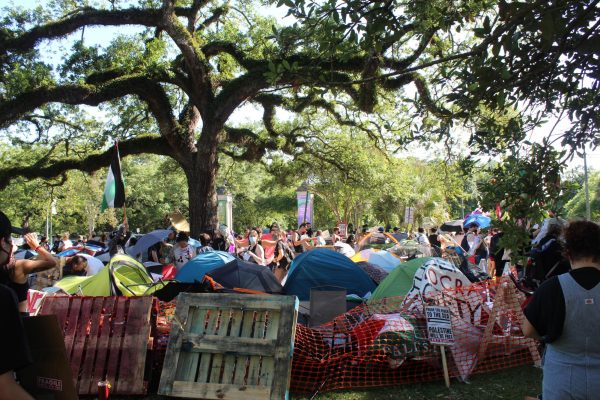


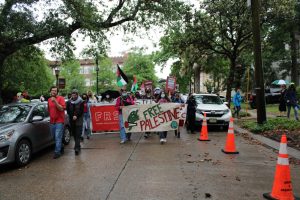
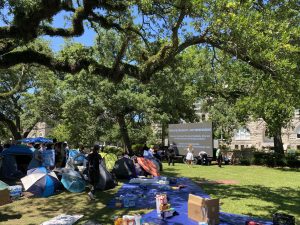

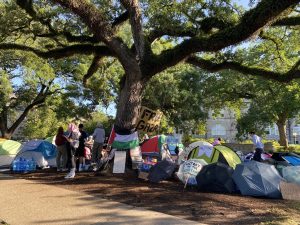
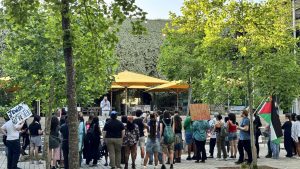

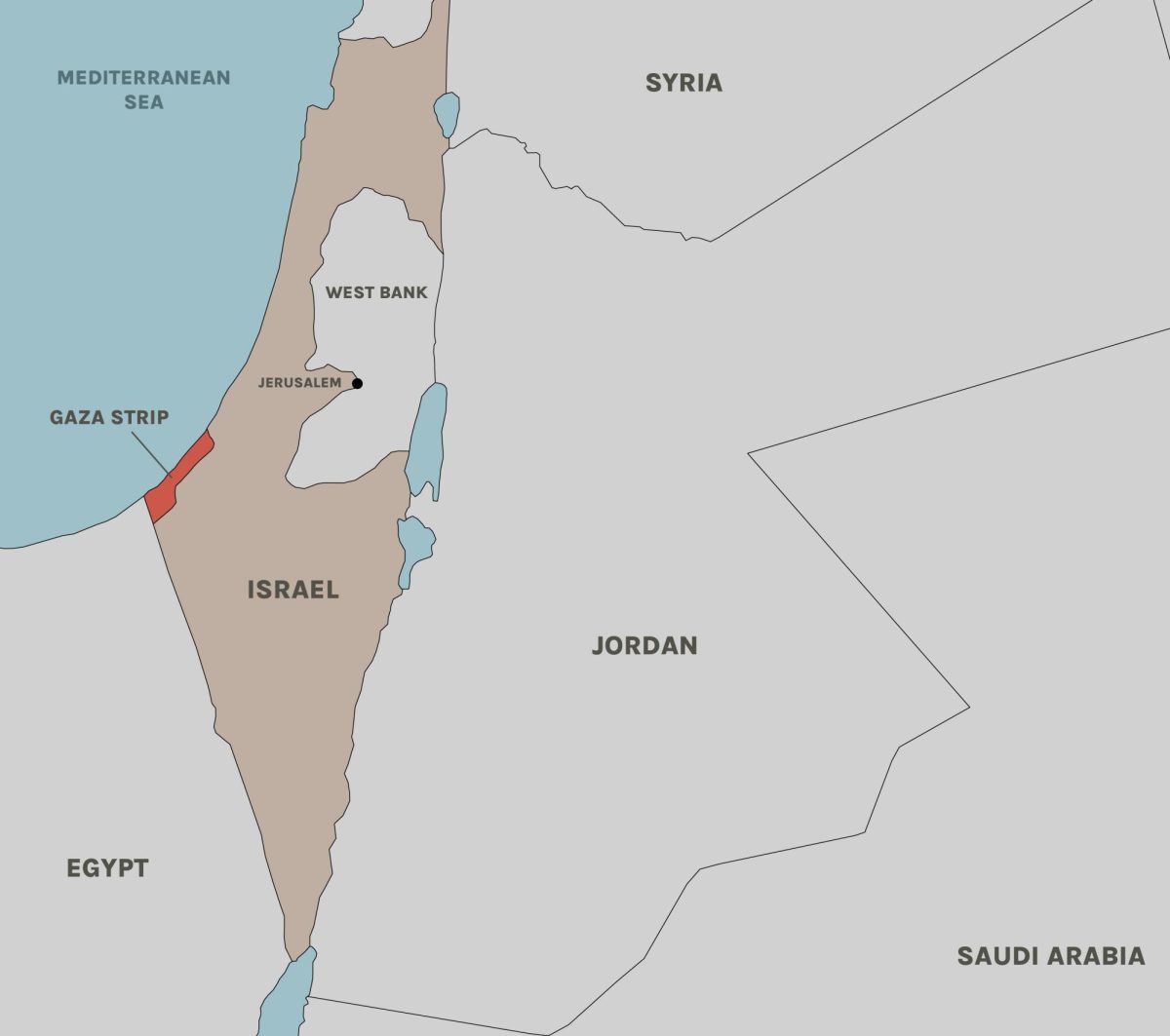
Leave a Comment